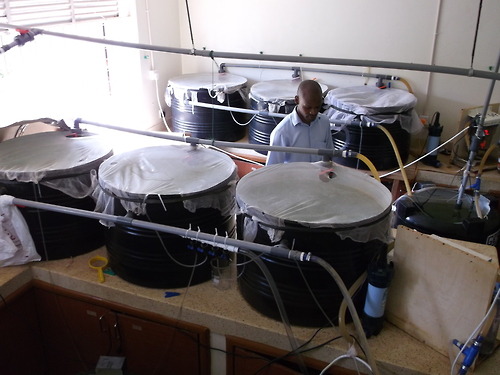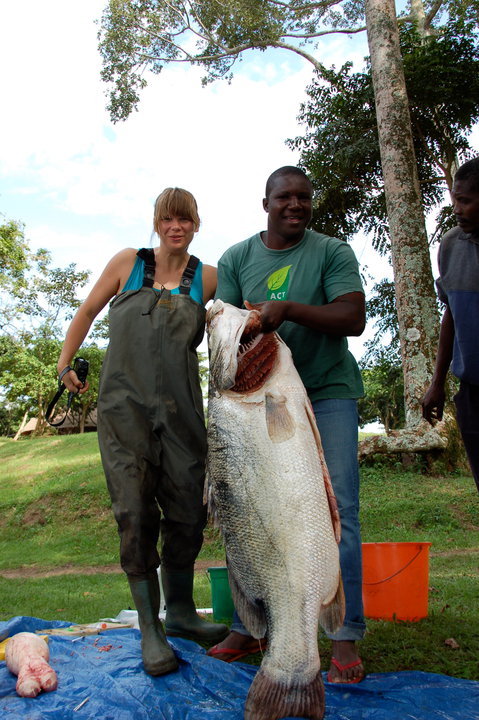by Elizabeth A. Nyboer
This summer I was fortunate to travel to Uganda to receive training in the operation and management of a respirometry laboratory in Kajjansi, a small town just outside the capital city of Kampala. The laboratory was developed by post-doctoral researcher Dr. Dominique Lapointe (Carleton University) and her backing team of international researchers (the Hot Fish group), and set up at the aquaculture research headquarters of the National Fisheries Resources Research Institute (NaFIRRI) of Uganda. The lab was designed specifically to conduct large-scale experiments on the thermal tolerance of locally caught (Lake Victoria) fish species, and is the only one of its kind in Uganda.

The Aquaculture Research and Development Center, Kajjans
Through this training I acquired technical skills required to execute two experiments that will be a central focus of my dissertation. My PhD research investigates how climate change may affect fishery stability in tropical regions, and an essential part of this is looking at how commercially harvested fish species respond physiologically to increasing water temperatures. Using respirometry, we can measure the metabolic rate of fishes exposed to different temperature treatments, and develop predictions on how species will fare under future climate change scenarios. I look specifically at the thermal tolerance of Nile perch, a large-bodied freshwater fish that comprises an economically and culturally important fishery in East Africa.

Stephen checking fish in the respirometry laboratory, Kajjans

My colleague Andrew and I with a large Nile perch captured near Lake Victoria
The Hot Fish project was initiated primarily to investigate the effects of climate change on commercially harvested fish species, but a central motivation of the team was to set up unique infrastructure to be used by local aquaculture and fisheries researchers in Uganda. My training in the lab is integral to this capacity building project as, through the course of my research, I will continue to train and employ local students and researchers in respirometry, hopefully fuelling the current up-swing in physiology-based climate change research in this region. My work in Kajjansi also provided an excellent opportunity to meet and network with many Ugandan academics and government researchers who have been, and will continue to be, extremely valuable collaborators in future projects.

0 Comments